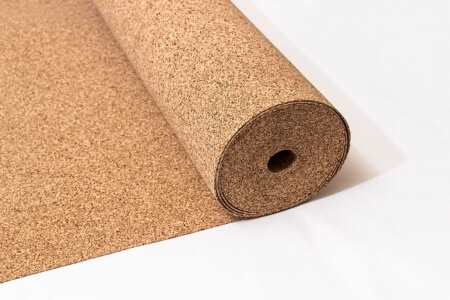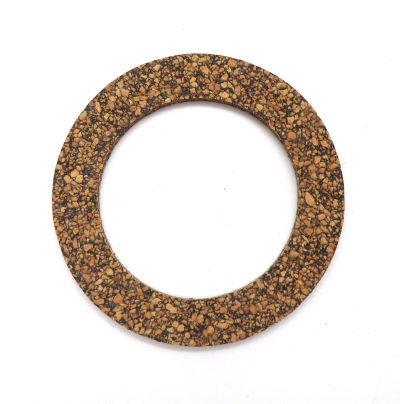Cork Sheet Manufacturers
Cork is a lightweight, natural material that is used for many applications, from gaskets and seals to tiles and surface protectors. We manufacture non-adhesive and adhesive cork sheets and rolls in a range of thicknesses and sizes, to fill orders of any amount.
Characteristics of Cork
- Cork is a versatile material with highly valued properties. Cork is:
- Lightweight
- Flexible
Highly water-resistant and hydrophobic - Durable, with a shore hardness of between 60-80
- Oil-resistant
- Ozone-resistant
- Fire-resistant
- Insulating
- Closed-cell structure
- Good compression set resistance
Cork sheet roll can be used to protect surfaces from heat, cut into cork gaskets or made into lightweight ceiling tiles. It can also be used to reduce vibration and sound from machinery such as compressors and generators.
Supplier of Small and Large quantities of Cork Sheet
We are cork sheets manufacturers and suppliers for orders of all sizes. Some customers require rolls of up to 100m for large batch manufacturing, while others purchase just a small amount for prototypes. We can supply self-adhesive cork rolls and adhesive cork sheets, prepared with adhesive backing for easy application.
Thicknesses available for Cork Sheet
Using our conversion techniques, our cork sheet can be sliced to any thickness between 1mm and 60mm. With our cork and rubber sheet, the strength and durability are high even when cut very thin.
We provide bespoke and custom Cork Sheet
If you are wondering where to buy cork sheets, you’ve come to the right place. Cut to your requirements, our cork sheet rolls and flat sheets are highly valued for their material properties.
Cork Sheeting FAQs
There’s a lot to know about cork – if you can’t find the answers here, feel free to contact Kirkfield directly for more information.
What is Cork Sheet?
Cork sheet is a layer of processed cork granules bound together with either resin or rubber to create a flat sheet. They can be flexible or firm, depending on thickness.
What can Cork Sheet be used for?
Cork sheet is a versatile material with uses in industrial, commercial and domestic settings.
Common uses of cork include:
- Bulletin boards
- Floor and wall tiles
- Sound dampening
- Thermal Insulation
- Surface protectors such as coasters, heatproof mats, etc.
- Flooring underlayment
- Cushioning and shock absorption
- Sealing bottles and containers
- Floating devices, such as for fishing
- Shoe soles (in Ancient Greece 1600-1100 years BC, some sandals had cork soles)
What are the Main Properties of Cork?
Cork is an excellent material for gasket manufacture due to the following properties:
- Highly Water-resistant and hydrophobic
- Durable
- Lightweight
- Flexible
- Oil-resistant
- Ozone-resistant
- Fire-resistant
- Closed-cell structure
- Good compression set resistance
What Grades of Thickness can Cork Sheet be supplied in?
We cut cork to thicknesses ranging from 1mm to 60mm, working to tight tolerances.
Is Cork Sheet Environmentally Friendly?
Cork grows as the phellem layer of bark tissue of the Cork Oak (Quercus suber), a tree native to southwest Europe and northwest Africa. It has been used by humans for over 5000 years, as a stopper for drinks bottles and to make floats. Around 300,000 tons of cork ar produced annually, mainly from Portugal and Spain. The cork is harvested every 9 years, without cutting down or harming the trees. The cork then regrows, to be harvested another year.
This sustainable harvesting practice allows the trees to live for up to 300 years. Cork is entirely biodegradable, but it is also easy to recycle into other products. As such, cork is considered an environmentally friendly, natural material.
In some cases, cork is bound with rubber to add durability and other properties. Rubber does not biodegrade easily and today, many types of rubber are synthesized from petrochemicals. This makes the cork and rubber sheets less sustainable than when bound with resin, another natural product.





